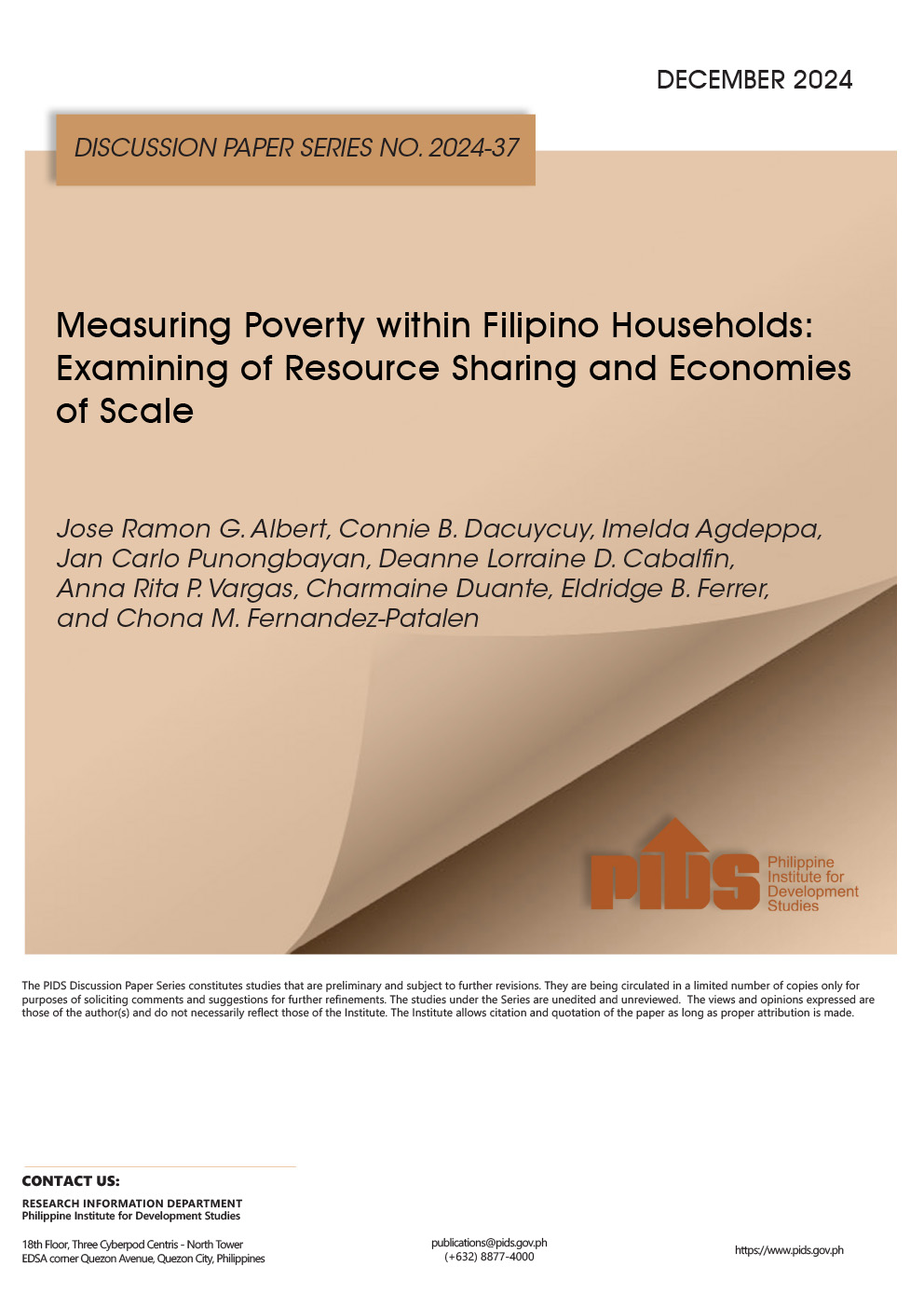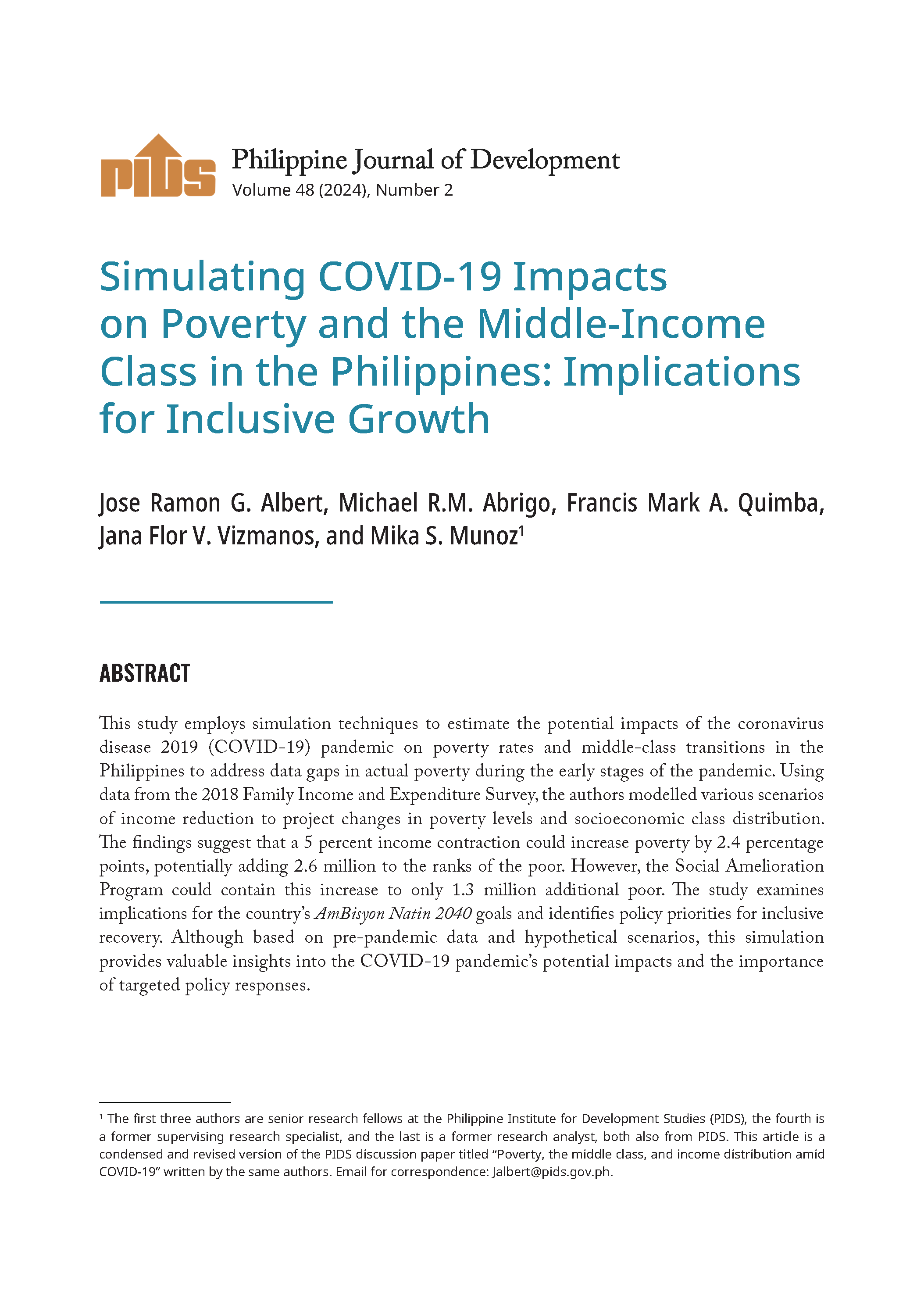A study conducted by the Philippine Institute of Development Studies (Pids) raised warning bells over higher- than-necessary conditional cash transfer (CCT) grants as this could lead to a culture of dependency among recipients.
The study, titled Pantawid Pamilya Pilipino Program: Boon or Bane?, was authored by Pids research fellows Aniceto Orbeta and Vicente Paqueo.
The authors recommended that the government first pilot a study of various cash grants before deciding on granting higher CCT amounts.
“Much bigger grants, however, can change the household calculus in ways that would lead to the weakening of work ethics and the emergence of dependency on government, as critics have warned,” the study read.
The authors said that, while arguments supporting increased cash grant amounts for beneficiaries could enhance the impact of the CCT Program, increasing the amount without studying the impact of various levels of cash grants “would be risky.”
They said it would be “more prudent” for the government to see the impact of alternative grant amounts could be an incentive to become dependent on the government.
“Providing all beneficiary households bigger grants without piloting it would be risky,” the authors said. “Relatively large grants could trigger unintended consequences on work ethics.” Apart from the studying possible amounts for the CCTs, the authors said there is a need to “rethink” the conditions for the cash grants.
Orbeta and Paqueo said that, given the elementary enrollment rate is now at 100 percent and all CCT beneficiaries are now covered by Philippine Health Insurance Corp., other education and health-related conditions must be put in place.
The study found enrollment for elementary pupils remained high in the first two waves of the CCT implementation and enrollment among children aged 12 to 17 years saw an increase after Wave 2, when high-school children were included in the CCTs.
While the CCT has not eradicated child labor owing to the grants being insufficient to remove the practice, it has significantly contributed to its decrease.
In terms of health, the study found more children undergoing growth monitoring and receiving deworming pills, vitamin A and iron supplementation. Further, more mothers received ante-natal and postnatal care from health-care professionals.
“Overall, the evaluations have shown that the poor, like anybody else, are rational on the use of their money. They respond to incentives, such as giving importance to socially desirable expenditures, like education and health,” the authors said.
The CCT Program started with 284,000 beneficiary households in 2008. By 2015, beneficiaries reached 4.1 million households. In terms of population, the number of beneficiaries rose from 662,000 children aged 0-18 years old in 2008 to 10.2 million in 2015.
Today the program covers about 79 percent of poor households whose income is less than the amount needed to basic necessities.
The CCT extends a health grant amounting to P500 monthly year round and an education grant of P300 per child for 10 months each year to each participating household.
To receive these cash grants, pregnant women must avail themselves of pre- and postnatal care, and be attended during childbirth by a trained professional and parents or guardians must attend the family development sessions, which include topics on responsible parenting, health and nutrition.
Other conditions include children aged 0 to 5 must receive regular preventive health check-ups and vaccines; those aged 6 to 14 must receive deworming pills twice a year; and children between 3 and 18 must enroll in school, and maintain an attendance of at least 85 percent of class days every month.












